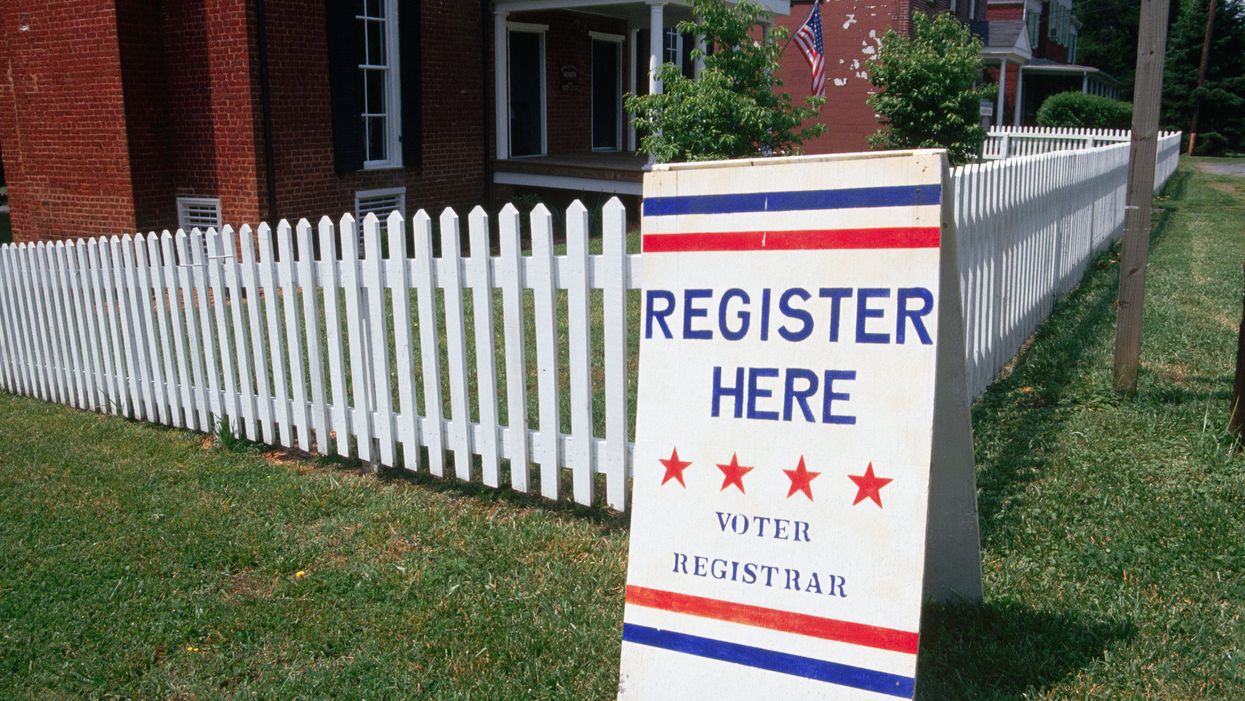It's two weeks from Election Day, and millions of potential voters are once again locked out of the democratic process. That's thanks to registration deadlines that have come and gone in many states, and the fact that fewer than half of states allow same-day voter registration.
This is no small problem. In November 2016, there were 66.5 million eligible but unregistered voters across the United States. Some of those may have tried to register before their state's deadline, only to be shut out by glitches and crashes like those we've seen again this cycle.
In Virginia, a severed cable took out the state's online registration system for several critical hours on the last day voters could register. In Florida, the online registration system also crashed at the deadline. On the single day following the crash that the state reopened registration (thanks to advocacy by my organization Demos and our partners New Florida Majority and the Advancement Project), 50,000 additional Floridians registered to vote. This in a state where the presidential race 20 years ago was decided by only 537 votes.
It shouldn't be this way. Voter registration is a remnant of a democracy designed to restrict the franchise to only those deemed worthy or competent, or in the words of the architects of Illinois' first registration law, to "preserve the purity of the ballot box." Born after the Civil War and enacted throughout the country through the early 20th century, voter registration laws have always had the effect of restricting the electoral and political power of Black people, immigrants and workers. Under California's first registration law, voters had to present themselves in person, and if the clerk did not know them, show evidence of their eligibility, a full three months before Election Day. Naturalized citizens could only register by bringing their original, court-sealed papers or by bringing two "legal voters" vouching for their eligibility. In Illinois, voters had to show up in person the third or fourth Tuesday before an election, and if their eligibility was challenged, they had to submit an affidavit and show up in person, again, the second Tuesday before the election and argue before an election judge.
Registration laws suppressed voter turnout from the very beginning, and they continue to reduce the number of registered Black and Latino voters today. Census data from 2016 show that 73 percent of whites were registered to vote, compared to 65 percent of Black people and just 39 percent of Latinos. Legislatures are finding new tactics to reject registrations and purge voters from the rolls to reduce the political power of Black, Latino, immigrant and working-class voters.
The United States is unique in the hurdles we make people clear to vote. In democracies around the world, verifying the eligibility of voters is the responsibility of the government. That's why Demos and others have called for a system of universal voter registration, in which all eligible people are automatically registered to vote, and those who are not registered when they show up to vote are allowed to do so on-site. This would begin to end this anachronistic system and build a more inclusive democracy.
Laura Williamson is a senior policy analyst working on voting rights and democracy at Demos . Read more from The Fulcrum's Election Dissection blog.



















Trump & Hegseth gave Mark Kelly a huge 2028 gift